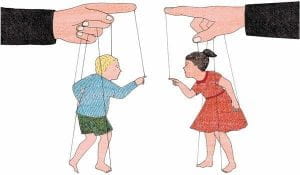 The solution to one of humanities biggest problem
The solution to one of humanities biggest problem
Ever heard of the 7/11 rule? It’s the rule that says within the first 7 seconds of meeting someone, you make 11 assumptions about them. While you think you are the exception, you most likely do this subconsciously without realizing it. Yes even I’m guilty of this but I was not aware of this until recently when I started learning about single stories and the dangers of them.
One of the first sources our class looked at was a ted talk by Nigerian author Chimamanda Adichie. Throughout the entire video, she told stories about growing up in Nigeria, then moving to America for post-secondary, and talked about the prejudice she faced from professors, roommates, and others. Out of all the things she said, one quote really stuck to me. “My American roommate was shocked by me. She had asked where I had learned to speak English so well….” This stuck with me because I realized looking back that I have done this many times. I have assumed before that because someone is foreign, they couldn’t speak English.
It made me realize how much we as a country made assumptions about others in Africa, Asia, and others. Then after watching an Instagram video, I really got a grasp as to how bad the issue is. The Instagram post was from Trever Noah, host of “The Daily Show” who reacted to a news anchor talking about Nigeria. In his report, the news anchor said “Nigeria is a country plagued by kidnapping, extremists, and bandits but the government wants to crack down on a new type of criminal, Twitter users.” to which Noah responded with “you never hear a foreign news anchor talk about America like that.” It goes to show how much as a country we look down and make assumptions about others. It also shows how much we associate countries like Nigeria with such awful things. Another example of associating others with bad/negative things is how we talk about Muslims/Islams. When I hear news stories of Muslims, they are never good, “We find that articles mentioning Muslims are far more likely to be negative than those in any other category. Of all stories mentioning Muslims or Islam, 78 percent are negative..” said Erik Bleich of the Washington Post. Bleich wanted to find out how many stories of Muslims and Islams were negative he collected over 850,000 newspapers dating back to 1995 containing words like “Islam” and “Muslim” that had negative language in the article. As a Muslim myself, seeing 78% of the stories were negative was very disheartening.
Another video we watched as a class was “How to stop hating”, a video by Michael Wesch in which he goes on a journey to experience what it’s like to live the country lifestyle. On this journey, he went to go visit his sister and went country line dancing. Wesch always thought of redneck republicans when he thought of country music and he wanted to change that. The night he went line-dancing with his sister, his perspective completely changed on country music. He also realized that it isn’t just about the dancing, “the lyrics meant something to my sister”. During the time Wesch’s sister started line-dancing, she was going through a tough time, and adding a hobby helped that. Wesch then talked about how the trip helped him understand the single story he had about country people.
At the end of Wesch’s video, he talked about a challenge he created. A challenge that involved spending time with someone different than you and listening to them and understanding them. Our class participated in this challenge and we were put into random partners. With these partners, we were given a list of questions to ask them. Once we finished, we were to reflect on the experience and talk about things we learned and were surprised about. This reflection was then supposed to be posted to Instagram with a photo we both related to. After talking to my partner Paul, someone who I’d never conversed with, I realized we weren’t so different and had a lot of the same interests, including anime, video games, music, and more. I then posted my reflection on Instagram with a photo of a treble clef because we both enjoyed playing instruments.
of Wesch’s video, he talked about a challenge he created. A challenge that involved spending time with someone different than you and listening to them and understanding them. Our class participated in this challenge and we were put into random partners. With these partners, we were given a list of questions to ask them. Once we finished, we were to reflect on the experience and talk about things we learned and were surprised about. This reflection was then supposed to be posted to Instagram with a photo we both related to. After talking to my partner Paul, someone who I’d never conversed with, I realized we weren’t so different and had a lot of the same interests, including anime, video games, music, and more. I then posted my reflection on Instagram with a photo of a treble clef because we both enjoyed playing instruments.
After spending more than a week learning about the meaning of a single story, I realized we all have some sort of single-story about one another, but the more we educate others on this topic, the more others become socially aware. The solution begins with you.
Photo Courtesy of NY Times

